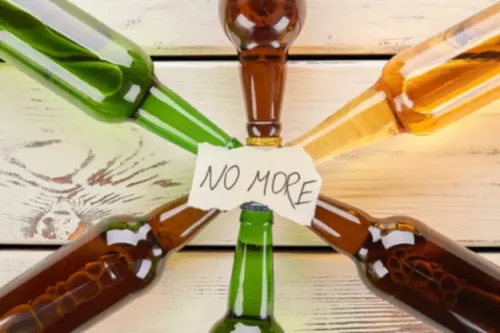How Do Narcissists Act When Drunk? An In-Depth Guide

However, it may or may not require a clinical diagnosis as compared to narcissism, based on the healthcare provider. The study commented that people who show grandiose traits may have feelings of importance in an environment of drinking where this quality may thrive. Narcissists with low self-esteem may gain acceptance from others or a sense of security through alcohol consumption or use it as a coping mechanism for dealing with distress. Narcissism and alcoholism are different conditions, but they can occur simultaneously and may share some overlapping symptoms. While both conditions can be challenging, certain approaches can help individuals overcome the potential complications of these disorders.

How to Live Together with an Alcoholic Narcissist?
They may pretend to be nice for a short while to get other people to leave them alone. Even if their behaviors hurt others, alcoholics do what they feel they need to continue drinking. It is not uncommon for two mental health conditions to co-exist (referred to as a comorbidity). The occurrence of two such conditions is called a dual diagnosis or co-occurring disorders.

Health Conditions
Once detox is completed and sobriety has begun, outpatient therapy can be beneficial. It is also recommended to utilize family or couples counseling to heal relationships as well. Treating NPD can be challenging and may require long-term therapy, but working alongside healthcare professionals can help people reduce symptoms. With treatment, those with Alcohol Use Disorder NPD can live healthy lives with positive relationships. According to the National Institute of Mental Health, 22.6% of people with a personality disorder may also have a substance misuse disorder. Some mental health conditions are likely to occur together, and when they do, they’re called co-occurring disorders.
Understanding Narcissism and Alcoholism
They may never fully understand how they may impact others and how their behavior can cost other people their happiness and peace of mind. This may seem unbelievable, but they become more rude, blunt, more selfish and show more signs of narcissism when they drink. This may come as a surprise, but narcissists act and appear to be drunken but they may not be. Someone who may be drinking regularly may develop a good tolerance to alcohol, yet they act to be drunk. Therapy, a strong support system, and self-care strategies can help you make a full recovery. Treatment can help someone with NPD and AUD to change their behavior and reduce the level of dysfunction that these two conditions have in their daily life.
Can Alcohol Make Someone Narcissistic?
Alcohol can provide a temporary sense of being cared for or admired, which is particularly appealing to individuals with an underlying sense of emotional deprivation. Grandiose narcissists have an inflated sense of self, an unshakeable belief in their own superiority, and a lack of empathy for those around them. We talk loudly, interrupt people, and generally behave as if no one else’s feelings matter. When we drink, our inhibitions fall away, and we start to believe we are the most attractive, funniest, and cleverest person in the room. Narcissists are full of entitlement and lack empathy for others, so they may do whatever they want to others with no regard to their feelings.

However, NPD includes other traits, such as needing constant praise and special treatment, reacting negatively to criticism, and manipulating others. People with NPD might be unwilling or unable to recognize others’ feelings and needs. what happens when a narcissist drinks alcohol These overlapping traits can make it hard to distinguish alcohol misuse from narcissism.
- Alcoholism, or alcohol use disorder (AUD), is an addictive disorder where people cannot control or stop their use of alcohol.
- Genetics also seem to play a role in the development of both conditions.
- When drunk, a narcissist may use their charm to seduce individuals, pushing boundaries and engaging in risky behaviors to feed their need for attention and excitement.
- Love Bombing and Unrealistic Compliments play a pivotal role in the early stages of relationships with narcissists, aiming to swiftly establish a sense of adoration and control over their targets.
- This lack of empathy can be further diminished by alcohol use, creating a significant emotional disconnect in relationships.
Though not all narcissists may be alcoholics, probably a significant proportion of them are. If people have risk factors for AUD, feel they are drinking excessively, or cannot control their alcohol intake, they can speak with a healthcare professional. If you think you have either or both conditions, it’s best to talk with a mental health professional for a diagnosis. According to the National Institute of Mental Health, 22.6% of people with a personality disorder also have a substance use disorder (SUD), which can include alcohol use. Traits https://ecosoberhouse.com/ like narcissism and personality disorders like NPD are long-standing. In order to have a diagnosis of NPD, they’ll have to consistently show the relevant symptoms over a period of many years.
- Inpatient facilities offer therapy sessions, support groups and medication-based therapy in a safe, supportive environment, allowing individuals to focus on their recovery without outside stress.
- All personality and substance use disorders are diagnosed based on a strict set of criteria described in the DSM-5.
- Research indicates that individuals with narcissistic tendencies are more likely to develop alcohol-related problems and engage in excessive drinking behaviors.
What Is an Example of a Covert Narcissist Parental Alienation?

Along with emotionally or physically neglecting their loved ones, they sometimes commit physical abuse. Everyone has a reason for the way they act, and an alcoholic narcissist might tell you a perfectly good reason for why they should drink, whether or not those reasons are justifiable. They might view their problem as a personal shortcoming or a failure that they are embarrassed to open up about. You might also consider seeing a therapist who can provide you with coping tools and a means to sort out your feelings.
Deja una respuesta